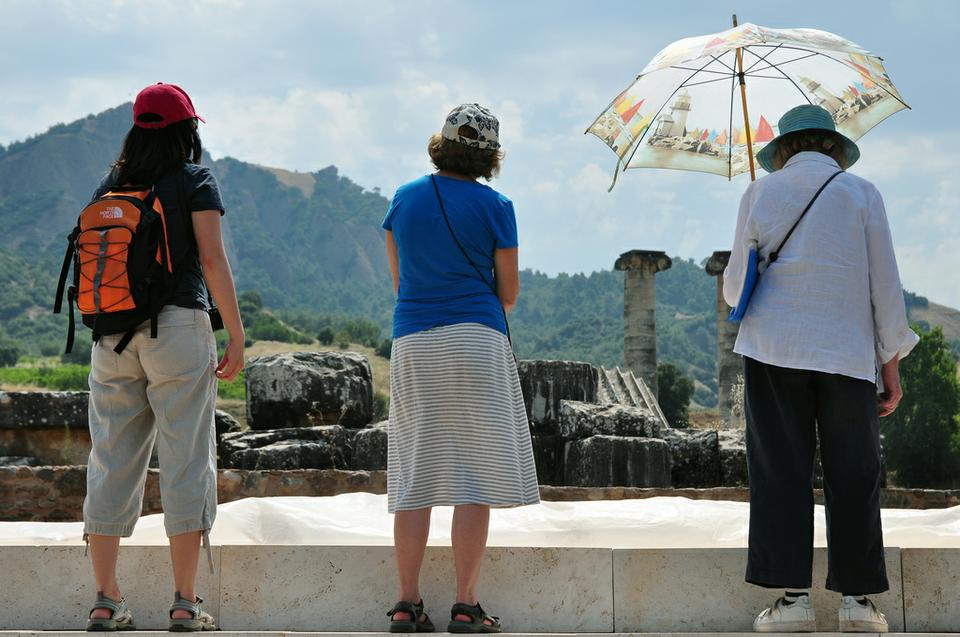
Reliability
IZMIR, Turkey—In Turkey, the buses are like the fruits we have for dessert on the dig compound: some are big, some are small, some smell nice, others less so. Most of all, like the fresh fruit that stays hidden until dinner, there’s the element of surprise. You come to know all of the possibilities, but you can never be certain about what to expect.
I’ve sat on a dolmuş, a shared taxi, next to a plant. I’ve thumbed through the entertainment system on a big, fancy bus and found not only Turkish pop but Madonna’s complete discography, with the filenames retaining the trademark underscores of an illegal download. I’ve ridden in a Mercedes Benz mini-bus with leather seats and working air conditioning, and many more without.
Where I find myself most often, though, is on the bus that travels from Izmir to the mid-sized town of Salihli, that slows down—almost to a complete stop—to deposit visitors to Sardis on the side of the new highway to make the trek up the hill towards the archaeological site. The company is called Güven, which means trust, and so far they seem to be like the peaches we have after lunch. They’re reliable. Consistent.
When I arrive at the Izmir otogar, the next bus is always already parked in spot number 120. The drivers and their assistants, without exception young men in crisp, short-sleeved white button-downs and red clip-on ties, stand outside the bus shouting a sing-song “Salihli! Salihli!”, pressing their tongues down on the second syllable. I tell them I’m going to Sart and they herd me towards the bus with a departure time, which I’ve since learned is in fact just an optimistic estimate. I buy a Coke, lurk in the terminal until I hear the engine turn on, and take my seat in the air-conditioned vehicle.
As soon as we leave the station, the satellite television starts playing. At first it’s the news, but somehow, as we drive eastward, reports about the Prime Minister give way to terrible Turkish soap operas. It’s a world of truly bad acting, in which eight-year-old boys lie in the hospital after their new gang tattoos ignite fevers and clueless computer nerds end up locked in car trunks. Today, a beautiful, scantily-clad bride holds a gun to her head but is talked down by her older, white-haired husband. After I rebuff the bus assistant’s offer of coffee, then tea, then Fanta, then strong kolonya, I look up to see that it’s the white-haired husband who’s threatening suicide this time.
By now I’m watching the sun set through the rear windows of the bus, and the children begin to nod off as their mothers grow enraptured by the drama on-screen. The bus assistant, who’s learning English, comes to tell me that Sart will be the next stop.
The bus slows and I follow him down the stairs and onto the gravel, glancing up at the Sardis Acropolis and thinking about the long walk back home. He hands me my backpack from the luggage stow and I thank him.
“See you soon!” He says out in English, straightening his tie and stepping back onto the bus.
“Görüşmek üzere!” I respond with the same nicety, just as commited to practicing my Turkish.
I can’t really predict anything here, but I’m pretty sure it’s true.


